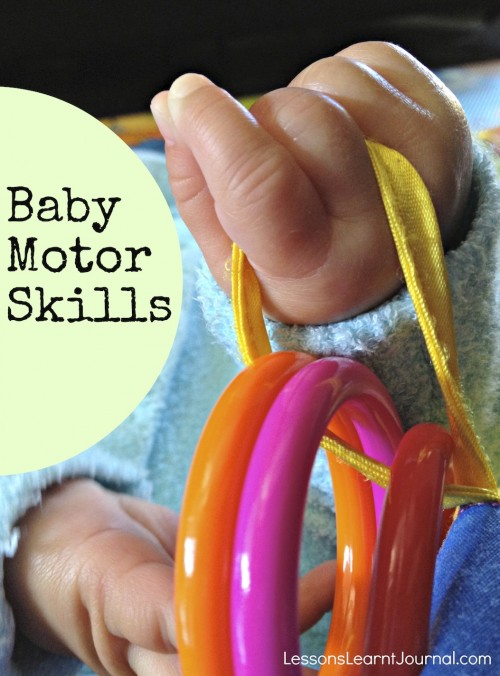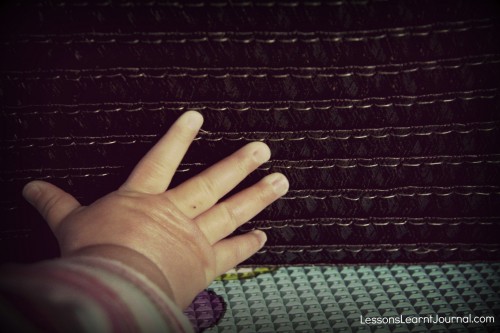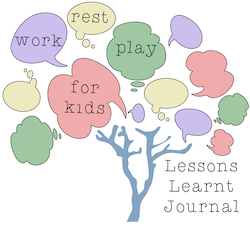
Baby Motor Skills
I once caught a snippet of a documentary presenting the remarkable fact that healthy babies of all cultures achieve the same milestones in the same consistent sequence at roughly about the same time. Baby motor skills progress in a consistent manner, regardless of culture.
Having had four babies within the tiny space of three and a half years, this remarkable fact about baby motor skills still astounds me.
There are variances, of course, in a baby’s rate of motor development. My twins were walking at about nine months and ever so eager to bounce, flip and spin. My daughter Miss K on the other hand is almost nine months old and enjoys exploring our living room by rolling from one corner to another.
Regardless of the rate at which my kids developed their gross and fine motor skills, they all enjoyed those precious months of early baby play. They all went through a phase when box play was all the craze; and as long as there was a ball around, there was always a baby ball game to play, no matter what stage of development they were at.
Baby Motor Skills Milestones
There are two types of baby motor skills: gross and fine.
Gross motor skills involve the coordination of the large muscles groups; trunks and limbs. They help us move from place to place.
Fine motor skills involve the smaller muscles of the arms and hand and help us manipulate our surroundings.

Baby Gross Motor Skills and their typical month of onset*
- Holds head up and steady (1-2)
- Lifts head and chest whilst on tummy (2-3)
- Sits whilst supported (2-3)
- Rolls tummy to back (3-4)
- Rolls back to tummy (3-4)
- Sits alone (6-8)
- Pulls to stand (8-9)
- Crawls (9)
- Cruise walking (9-10)
- Stands alone (11-12)
- Walks alone (12-13)
Baby Fine Motor Skills and their typical month of onset*
- Reflexive grasp (birth)
- Ineffective pre-reaching (1-3)
- Voluntary grasp (3)
- Successful reach and grasp (4-5)
- Controlled reach and grasp (6-7)
- Pincer grasp with thumb and forefinger (9)
- Claps hands (10)
- Releases objects crudely (12-14)
- Controlled release (18)
* Source: What’s Going on In There? By L. Eliot (2000)
As with anything, there is a range in what is considered normal for baby motor skills. Roughly, what is deemed normal is reaching between two and seven months; sitting alone between five and nine months and walking well between nine and fifteen months.

Supporting a Baby’s Motor Development
L. Eliot (2000) makes the interesting point that practise is essential for baby motor skill development, provided it’s done at the right time, i.e. when a baby is ready for it.
If done too early, you could end up training the wrong neural pathways or simply frustrate and discourage the baby. However, when ready, baby motor skill practise is required to refine skilled movement.
As Miss K. enjoys rolling around and grasping at things, I am reminded to provide her with a safe, unrestricted environment for exploration so she can practise and refine her baby motor skills.
It would also be good to remember the importance of sensory feedback, and the important role her sense of balance and motion plays in her development.
Baby proofing our home seems to be a never ending process; but they do seem to grow ever so quickly.

K: 8 months
July 2012
If you are new here, you might like to subscribe to our RSS feed or receive updates direct to your email. We have many fun ideas to share.
















